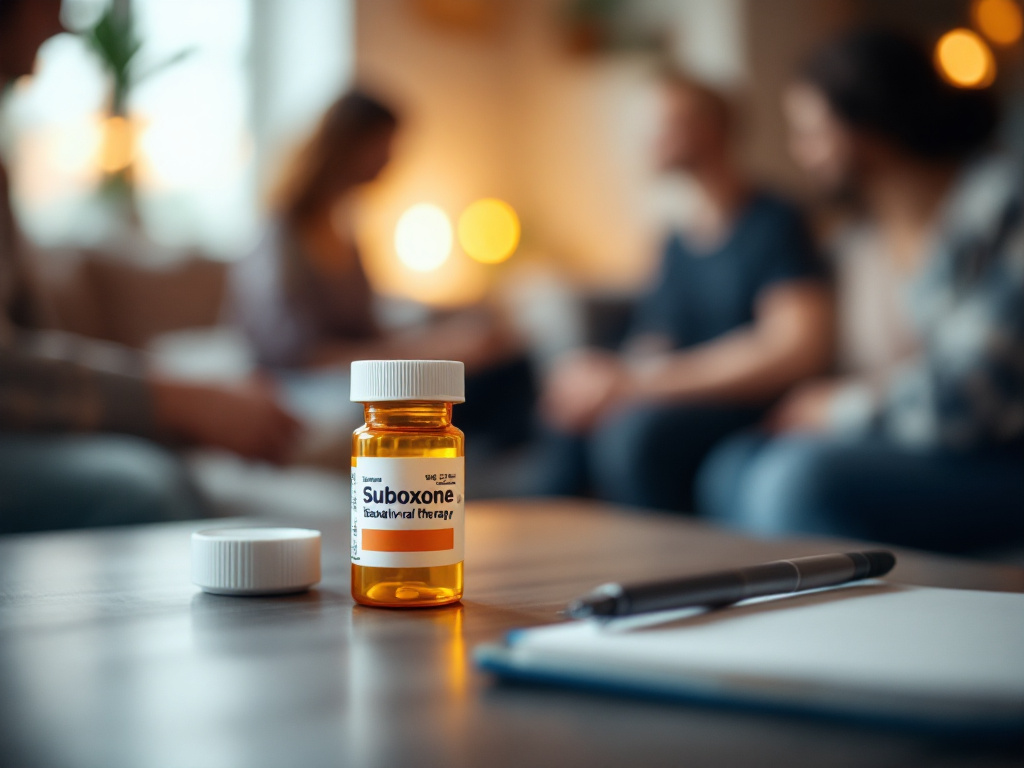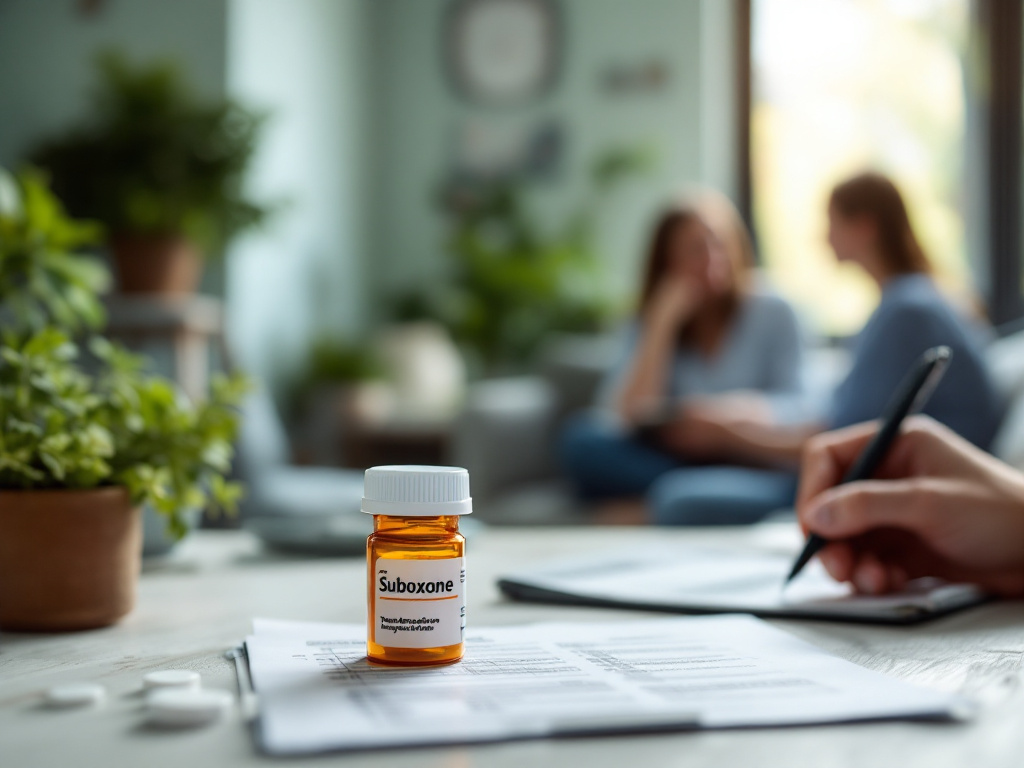Understanding addiction medicine
If you or a loved one is struggling with a substance use disorder, you may have come across the term “addiction medicine” while searching for answers. At its core, addiction medicine is a specialized field focused on evaluating, treating, and supporting individuals affected by the complex challenges of drug and alcohol dependency. According to the Cleveland Clinic (Cleveland Clinic), addiction is not a moral failing, but rather a chronic disease that alters brain circuitry, making it difficult to break free from destructive patterns. Medical professionals who specialize in addiction medicine combine evidence-based therapies with compassionate care, helping you or your loved one navigate the journey toward renewed health.
The complexity of substance use
Substance use disorders are rarely caused by a single factor. Instead, they often arise from a combination of genetic predisposition, environmental influences, emotional stressors, and life circumstances. For many people, addiction stems from what the National Institutes of Health calls “complex interactions among brain circuits, genetics, the environment, and an individual’s life experiences” (NYSAM). While it might initially serve as a way to cope with emotional or physical pain, ongoing substance use reconfigures the brain’s reward system, creating a powerful craving for repeated use. Over time, tolerance can develop, requiring higher doses to achieve the same effects. These altered brain circuits can make discontinuing substance use incredibly challenging.
From the outside, it may be easy to wonder why someone doesn’t just stop using. However, the repeated release of dopamine and other neurotransmitters in the brain can diminish an individual’s interest in normal activities, making it feel almost impossible to quit on one’s own. Recognizing addiction’s multifaceted nature is the first step toward forming effective, individualized treatment plans. When you address medical, psychological, and social components with comprehensive care, you gain a real chance for lasting recovery.
The role of specialized medical care
Often, the combination of therapy, community support, and medical interventions is crucial for living a drug- or alcohol-free life. Addiction medicine physicians are specifically trained to handle this tapestry of needs, serving as a knowledgeable guide and advocate. They understand how addiction affects your body and mind and use a variety of psychiatric, therapeutic, and medical approaches to treat you holistically. Medical interventions may include carefully supervised detoxification, prescription medications to manage cravings or withdrawal, and ongoing checkups to monitor progress.
For example, research shows that individuals who remain in treatment for three months or longer typically experience more positive outcomes (NCBI Bookshelf). This extended involvement might involve continuous counseling, medication adjustments, and routine visits to ensure you have the support necessary for lasting recovery. Addiction medicine teams can also coordinate care with other professionals, such as mental health counselors, social workers, or even vocational specialists who help reintegrate you into daily life. By taking a collaborative approach, addiction medicine practitioners address not only the direct effects of substance use but also the root causes.
Why consider Freedom Treatment
Choosing a treatment provider is one of the most significant steps you can take on the path to recovery. Unfortunately, not all programs offer the same depth of services or level of empathy. At Freedom Treatment, we recognize that you want more than a textbook approach or a quick solution. Our focus is on delivering a supportive environment, grounded in empathy, specialized resources, and evidence-based treatments.
Our mission and approach
Freedom Treatment’s mission is to empower every individual we serve with the knowledge, skills, and emotional resilience needed to maintain sobriety. This begins by understanding the unique challenges you face. Whether you are confronting alcohol dependence or grappling with opioid misuse, we design treatment that recognizes your history and circumstances. Drawing on principles from addiction medicine, we integrate behavioral therapies, peer support networks, and nutritional guidance to rebuild the foundation of your well-being.
Our approach includes collaboration with professionals from multiple disciplines. We can help coordinate medically supervised detox placement if you need structured assistance to minimize withdrawal symptoms safely. Once detox is complete, you benefit from care that is entirely tailored to your situation. For instance, if you require specialized help to manage cravings or withdrawal through medications, our suboxone treatment program or methadone treatment program may be suitable. By starting your recovery process with serious attention to your medical and emotional needs, you begin to heal in a more stable manner.
Personalized care for lasting change
One of the guiding philosophies at Freedom Treatment is to provide truly personalized care. Like many other chronic conditions, addiction can manifest differently from person to person. A one-size-fits-all plan rarely works in the long run. That is why we leverage an array of treatment methodologies:
- Tailored treatment programs: We design specialized plans that cater to your unique set of stressors, lifestyle factors, and medical history. Each step you take, from the initial intake to the final stages of therapy, is guided by a commitment to your personal goals.
- Comprehensive care: From withdrawal management and counseling to long-term aftercare, we support you at every level. We maintain close communication with you, regularly assessing progress and adjusting the plan whenever needed.
- Family involvement: For many individuals, family provides a vital layer of support. Our family therapy outpatient program encourages loved ones to partake in the recovery journey. This involvement fosters greater understanding, reduces the stigma often associated with addiction, and strengthens the support system needed for sustained wellness.
- Individualized plans: Whether you’re managing opioid withdrawal, dealing with co-occurring conditions, or maintaining sobriety after a relapse, we craft your care plan to address each aspect of your life—physical, mental, and emotional.
By integrating these guiding principles, Freedom Treatment remains committed to delivering top-quality addiction care that not only meets industry standards but also exceeds your expectations.
Key elements of addiction medicine
When your treatment journey is grounded in addiction medicine, it typically includes a combination of therapies designed to meet diverse needs. This holistic approach involves an in-depth understanding of the biology of addiction, psychological support, social reintegration, and continual follow-up.
Evidence-based therapies
Evidence-based therapies serve as the backbone of most reputable addiction treatment programs. These therapies are rooted in consistent research findings, demonstrating measurable success in promoting sobriety and reducing relapse rates. A few of the most common evidence-based approaches include:
- Cognitive-behavioral therapy (CBT): CBT helps you identify unproductive thought patterns that may trigger substance use. By developing healthier coping strategies, you learn to avoid or effectively manage high-risk situations.
- Motivational interviewing: This therapy bolsters your desire to change by focusing on your personal values and goals. It helps resolve ambivalence and encourages accountability.
- Group therapy: Sharing experiences with a sober peer group can reduce feelings of isolation. Also, peer feedback can offer new insights, helping you build emotional resilience.
- Relapse prevention: By outlining steps to handle cravings or setbacks, relapse prevention therapy teaches you healthy ways to respond when faced with potential triggers.
If you want to learn more about one of our specialized approaches, be sure to explore our customized substance abuse counseling, which combines evidence-based methods with compassionate one-on-one support.
Importance of medication-assisted therapy
Medication-assisted therapy (MAT) plays a crucial role in modern addiction medicine, especially when people struggle with severe opioid or alcohol dependence. According to multiple studies, MAT reduces withdrawal symptoms and lowers the risk of relapse by stabilizing brain chemistry. This method combines specific prescription medications with psychosocial support. Among the most notable MAT options:
- Suboxone treatment program: Suboxone contains buprenorphine and naloxone, helping reduce cravings and withdrawal symptoms without producing the intense euphoria associated with opioids.
- Methadone treatment program: Methadone stabilizes the brain’s reward system, minimizing cravings so you can focus on counseling, life skills training, and personal growth.
- Vivitrol treatment program: Vivitrol (naltrexone) helps block the opioid receptors in your brain, diminishing the rewarding effects that sustain addictive behavior.
- Brixadi treatment program: As a newer option, Brixadi (buprenorphine extended-release) ensures steady medication levels. It can be especially beneficial for individuals who prefer a long-acting formulation.
Whichever path you choose, combining medications with therapy helps you regain control and build a framework for a drug-free life. Medication-assisted therapy can be customized in terms of dosage, frequency of visits, and timeline, depending on your progress and comfort. Over time, you and your care team can reevaluate to modify or discontinue medication, maintaining a central focus on psychosocial support.
What sets us apart
When you decide to trust Freedom Treatment, you’re stepping into a practice known not just for its medical expertise, but also for how we communicate hope. We believe that no matter how tenacious an addiction may seem, you can reclaim your health when you receive the right support in an environment that values dignity, empathy, and evidence-based care.
Collaboration with employers and the justice system
Statistics indicate that as many as two-thirds to three-quarters of clients in private drug treatment are employed, and the criminal justice system often mandates or encourages treatment for individuals under legal supervision (NCBI Bookshelf). Understanding these realities, our team collaborates with relevant stakeholders to ensure you or your loved one can continue treatment without jeopardizing employment or violating legal obligations. If your employer participates in an Employee Assistance Program (EAP), we can coordinate services, ensuring that your privacy is respected under applicable laws.
You might be referred to our services through the criminal justice system. If so, we work vigilantly to keep communications clear and supportive. We can provide progress updates when needed and openly discuss any legal or employment requirements. Our goal is to help you adapt your care plan to these constraints so that you can focus on the healing process without sacrificing your daily responsibilities.
Family involvement and supportive resources
At Freedom Treatment, we recognize that addiction can impact not just one individual, but an entire network of loved ones. Pressure from personal relationships can fuel substance misuse, but these same relationships can also pave the way toward lasting recovery. We encourage you to involve family and friends who are supportive of your journey. In many cases, family therapy sessions can be transformative, offering a safe channel for communication and mutual accountability.
We also pay special attention to co-occurring disorders, where an individual is challenged by both mental health issues and substance use. If this describes your situation, we often recommend co occurring disorders counseling to help manage symptoms of depression, anxiety, or other mental health conditions alongside addiction treatment. Our emphasis on integrated care ensures that both conditions are addressed concurrently, improving your chances of long-term stability.
Steps in your recovery path
Your path to sobriety is not a one-time event, but rather a journey that evolves as you reclaim control of your life. Freedom Treatment helps you navigate this path in distinct, carefully organized stages. By breaking down a seemingly insurmountable task into manageable steps, you can focus on achieving near-term goals while keeping an eye on long-term well-being.
Assessment and diagnosis
The first step focuses on evaluating your specific challenges. Our clinical team performs a comprehensive assessment, analyzing factors such as medical history, mental health status, and your personal experiences with substances. Depending on your situation, you may also undergo physical exams, urine drug screenings, or lab tests to establish a clear picture of your health. We believe that long-term success starts with accurate information and compassionate understanding.
During this stage, it is common for individuals to exhibit some ambivalence about seeking care, especially if external pressures—such as a legal mandate or familial intervention—played a part in the decision to pursue treatment. If you find yourself feeling conflicted, we encourage open dialogue about your fears. This honesty can shape a more effective, empathetic treatment strategy. In many cases, acknowledging concerns and ambivalence can spark deeper motivation to engage more fully with the recovery process.
Tailored treatment planning
Once the assessment phase is complete, our team develops an individualized plan. This might include opioid addiction treatment if your struggle is primarily with opioids, or alcohol addiction treatment if alcohol is your main concern. If you are dealing with another substance—or multiple substances—your care might involve cocaine addiction treatment alongside extensive counseling. We also address the role of broader life challenges, such as career or parenting responsibilities, so that your plan reflects real-world conditions.
Depending on your needs, you may participate in:
- Residential or partial hospital programs: For those requiring constant supervision or more intensive care.
- Outpatient addiction treatment: Ideal if you have a stable home environment or need to continue working while receiving support. In some circumstances, you can attend therapy sessions during evenings or weekends to accommodate your schedule.
- Telehealth services: If in-person appointments are challenging, we offer telehealth addiction treatment for counseling or medical check-ins.
Our team also uses motivational interviewing techniques to keep you engaged. If you encounter bouts of doubt, we guide you in focusing on the personal reasons you wish to live a healthier life. By combining consistent professional guidance with your intrinsic motivations, we can solidify your commitment to sobriety.
Ongoing aftercare
Completing a primary treatment phase is a milestone, not an endpoint. Because addiction is a chronic condition, it requires sustained follow-up to minimize relapse risks. At Freedom Treatment, we design an aftercare plan to help you solidify recent gains and continue progressing. This plan may include:
- Relapse prevention strategies: Working closely with our outpatient relapse prevention planning team, you can stay vigilant and prepared if you encounter triggers.
- Continuing therapy: Depending on your comfort, you may attend individual or group therapy addiction counseling. Continual involvement fosters accountability and helps you maintain emotional equilibrium.
- Support groups: By connecting with peers who have experienced similar challenges, you reduce isolation and find role models who demonstrate that long-term recovery is achievable.
- Career and social support: If you are returning to your professional life or seeking new opportunities, services like career support addiction recovery can help you navigate the transition in a sustainable way.
Aftercare ensures that you remain connected to a healing community even after the most intensive therapy phase is over. In combination with consistent progress checks and, when necessary, medical tune-ups, this stage reduces the likelihood of relapse and promotes a fulfilling sober life.
Frequently asked questions
1. What exactly is addiction medicine?
Addiction medicine is a dedicated medical subspecialty that focuses on diagnosing, preventing, and treating substance use disorders. It also addresses co-occurring mental health issues, ensuring you receive comprehensive medical and therapeutic care. By combining scientific research with a compassionate approach, addiction medicine aims to help you break free from the cycle of substance dependence.
2. Do I need medication-assisted treatment to recover?
Medication-assisted treatment is not mandatory for everyone, but it can be exceptionally beneficial if you struggle with opioid or alcohol dependence. Medications like buprenorphine, methadone, and naltrexone can help reduce cravings and withdrawal symptoms, allowing you to focus on therapy and personal growth. Whether or not you require medication depends on your specific situation, and our team will guide you toward the most appropriate option.
3. Why is family involvement so important?
Addiction often affects not just you, but also those closest to you. Family involvement—through open communication, counseling, and support—can foster a stronger recovery environment at home. It helps rebuild trust and encourages healthy boundaries. Moreover, you benefit by feeling understood instead of judged, which can significantly bolster your commitment to the healing process.
4. Can I still work while in treatment?
Yes. Many individuals juggle employment and addiction treatment successfully. You may consider an outpatient program that offers flexible scheduling or flexible evening addiction appointments. Some workplaces also provide Employee Assistance Programs to support you through this process. If legal concerns are a factor, we can collaborate with probation officers or other officials to help you remain compliant while receiving quality care.
5. What if I have tried treatment before and relapsed?
Relapse does not mean failure. Addiction is known for its potential relapses, particularly in the early stages of recovery. If you have experienced a relapse, it can be a signal that your treatment plan needs adjustments. We will reassess your situation, possibly modifying your medications, therapy schedules, or support networks. Our goal is to help you refine your coping strategies and deepen your tools for long-term remission.
Moving forward with confidence
Addiction can overshadow every aspect of your life, but the right combination of evidence-based therapies, supportive care, and personal resolve can unlock a brighter future. Freedom Treatment is committed to walking with you or your loved one each step of the way—beginning with assessment and culminating in a robust aftercare plan.
Taking that first step might feel daunting, especially if you carry doubts about whether change is truly possible. By respecting the complexity of substance use, recognizing the power of medication-assisted therapy, and weaving in robust psychosocial support, our team stands ready to help you build a foundation for success. From individualized medication assisted therapy to specialized programs such as maternity addiction treatment or pregnancy addiction treatment program if you are expecting, we design our services to meet you exactly where you are.
Your path to recovery can be one of renewed purpose and expanded possibilities. By embracing addiction medicine at Freedom Treatment, you gain a partner devoted to personalized care, compassionate understanding, and proven methods for combating substance abuse. There is no shortcut to genuine, sustainable wellness, but when you have a supportive environment, tailored treatment programs, comprehensive care, individualized plans, and the support necessary for lasting recovery, the journey becomes infinitely more hopeful. We invite you to reach out today—because just as addiction can affect every area of your life, freedom from it can be just as transformative.











